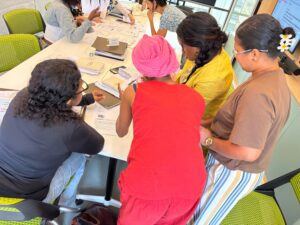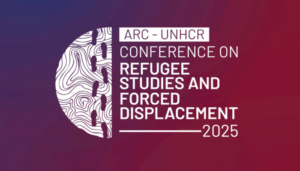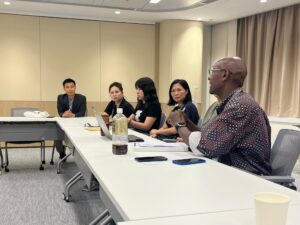Recognising Intimate Partner Violence as Grounds for Protection: A Case Win on Appeal
One of Justice Centre’s clients, a woman from Madagascar, was recently granted protection on appeal by the Torture Claims Appeal Board (TCAB)—a decision that highlights the growing importance of recognising intimate partner violence as a legitimate ground for non-refoulement protection in Hong Kong.
The client endured years of severe abuse at the hands of her husband, including physical assaults, psychological harm, and marital rape. After leaving Madagascar to work as a domestic worker in Hong Kong, she feared returning due to the risk of continued violence and a lack of meaningful state protection in her home country. When her initial claim was refused, Justice Centre assisted her in filing an appeal and securing legal representation by one of our law firm partners. In reviewing her case, the TCAB considered the extent and severity of the harm she had suffered, as well as the limitations of state protection for survivors of intimate partner violence in Madagascar. This outcome is a critical affirmation of what Justice Centre and other advocates have long maintained: that gender-based violence, including abuse within the home, can constitute persecution and give rise to international protection obligations. This decision was supported by the application of our research into Family Violence as Persecution, which draws on international guidance, case law, and local experience to provide a framework for recognising and substantiating these claims within the Hong Kong context. We welcome the Board’s thoughtful consideration of this case and its recognition of domestic violence as a serious form of harm. It affirms that the protection system in Hong Kong can respond meaningfully to the realities of gender-based violence when the legal and evidentiary arguments are clearly presented. For our client, the decision brought immense relief. After years of fear and uncertainty, she now has a chance to rebuild her life in safety and with dignity. She shared her deep gratitude—for being heard, for being supported, and for finally feeling that her experience has been recognised.Expanding Support for People in Immigration Detention
Detention is one of the most isolating and opaque parts of Hong Kong’s immigration system. For those detained—often in remote facilities and with limited access to legal support—the stakes are high and the pathways unclear. That’s why we’ve broadened the scope of our work to reach and support this particularly vulnerable group more effectively. Over the past year, Justice Centre has worked with a team of pro bono lawyers to begin conducting in-person legal visits. This collaboration has transformed the way we triage and respond to detention cases. Where we once relied on slow mail, we’re now able to connect more directly with detainees—gathering timely information and, in some cases, helping to prevent prolonged or unlawful detention. But access alone is not enough. Through our ongoing partnership, we’ve co-developed the first publicly accessible case law database focused on immigration detention in Hong Kong. This tool offers clear, practical summaries of relevant legal decisions and helps ensure lawyers, caseworkers, and community advocates can better support people at risk. We’ve also launched a Detention Self-Help Toolkit, designed with input from the refugee community. It equips people with accessible, rights-based information to understand detention processes and make informed decisions about their cases. The toolkit is not only in use by our clients, but has become a key resource in community trainings, including our Paralegals for Protection programme which empowers refugee women to support others in similar situations. These efforts reflect our broader commitment to legal empowerment—helping individuals and communities navigate the system with dignity, knowledge, and agency. With our partners, we are continuing to build practical, collaborative solutions to meet the real challenges of immigration detention.Strengthening Access to Justice Through Community-Based Support
When people understand their rights, they’re better able to make informed decisions and seek the protection they’re entitled to. For many in displaced communities, the first point of contact for information and support is not a lawyer or NGO—but a trusted peer. That’s why a community-based approach matters.
Humanity Seekers and Justice Centre are thrilled to have launched Paralegals for Protection—a pilot project training refugee women to become community-based paralegals, equipped with the knowledge and tools to support others in their community. While they will not offer legal advice, these women will act as trusted guides—sharing accurate information, helping peers understand their rights, and making referrals to legal or support services when needed.
The energy and commitment the seven participants bring to each session is a testament to both the need for this kind of initiative and the strength of community-led support.
The project builds on best practices from other global contexts, where community paralegals have helped make legal systems more accessible to displaced populations. It also responds to the unique challenges of Hong Kong, where people at risk of immigration detention often struggle to get timely legal information or support.
Co-designed with members of the refugee community, Paralegals for Protection is both practical and empowering. Participants receive training on the legal framework surrounding detention, community engagement, and safe, ethical ways to support others. They will also co-lead workshops, helping to share reliable information with a wider audience.
This initiative reflects our broader strategy to improve access to justice—not just through casework, but by strengthening the ecosystem of support around displaced people. By building capacity within communities, we help ensure that legal protection is not only available, but understood and navigable.
We look forward to sharing updates from the programme as it develops, and to learning from the women who are stepping forward to support their communities in new ways. 
The Refugee Advises the Lawyer: Community Voices Shaping Better Legal Practice
Refugees are often the subjects of legal processes—but rarely the co-creators of the systems designed to support them. Justice Centre’s latest initiative aims to change that. Through a participatory process, we’re developing professional guidelines shaped by the voices of those with lived experience. Under our capacity-building strategy, we’ve launched an innovative participatory project that invites refugees to co-develop guidance for legal professionals working in Hong Kong’s asylum system. Too often, policies and training materials are created without the input of those most affected by them. This project aims to change that. The Your Experience with Lawyers initiative draws inspiration from a growing global movement to embed lived experience in service design and legal practice. Research shows that meaningful community participation leads to more relevant, respectful, and effective support. With support from community consultants—refugees who helped shape the project from design to draft—we have gathered insights through interviews and group discussions exploring people’s past experiences with legal support in the protection process. Early themes have been powerful and clear: many participants described feeling rushed, unheard, or confused in legal interviews. Some were unsure of the lawyer’s role, or lacked trust in the process altogether. Others pointed to the emotional strain of being met with disbelief, or facing conversations conducted in unfamiliar languages. Alongside these challenges, participants also offered thoughtful, constructive ideas for what respectful, accessible support should look like—from how interviews are introduced to how trust is built over time. This April, preliminary findings were shared at the ASEAN Research Center (ARC) Conference on Refugee Studies and Forced Displacement 2025 in Kuala Lumpur. In a moving moment, several refugees who had shaped the project dialed in directly to share their reflections—demonstrating not only the value of their contributions, but their role as co-creators in improving the system for others. This approach offers something new and important to Hong Kong’s protection landscape: a practical model for participatory guideline development that centres lived experience without compromising professional standards. By working alongside community members, we aim to strengthen the quality of legal representation while fostering more human-centred, trauma-aware practice. The final practice advisory will be released later this year and will form part of our broader legal empowerment and training efforts. We look forward to sharing it—and to continuing to listen, learn, and build together.
Refugee Voices in Housing Policy: A Step Toward More Inclusive Dialogue
For refugees who are barred from working and receive only HKD 1,500 per month in housing assistance, housing options are especially limited. Subdivided units, while far from ideal, are often the only available option. Recently, a representative of Humanity Seekers—a refugee-led community group supported by Justice Centre—attended a meeting with a legislator to share their perspectives on the proposed Subdivided Unit Bill. This marked an important step: for the first time, concerns from within the refugee community were voiced directly to a legislator as part of the public consultation process. The bill, aimed at regulating basic standards in subdivided units, is an important effort to protect tenants in some of the city’s most precarious housing. However, there is a risk of unintended consequences. If landlords respond to new regulations by raising rents or pulling units from the market, refugees—who already face extreme housing precarity—could be further marginalised. Many protections built into the bill for vulnerable local populations do not extend to non-residents or people seeking asylum. In their remarks, Humanity Seekers members highlighted these specific risks, explaining how any changes to the availability or affordability of subdivided units would impact those who have no other housing options. Their participation helped bring forward an often-overlooked perspective and showed the importance of inclusive dialogue when shaping policy that affects all corners of society. We welcome this opportunity for refugee voices to be heard and recognised, not just through written submissions but directly in the legislative process. Justice Centre continues to work alongside community groups like Humanity Seekers to ensure that those with lived experience of displacement and hardship are heard. As housing reform continues to unfold, we hope this marks the beginning of more open, informed, and compassionate engagement with refugee communities.
Join Us at ReThink HK – Complimentary Expo Passes Available
Justice Centre is proud to be a charity partner at ReThink HK 2025—Hong Kong’s largest showcase of sustainable business solutions, taking place on 11–12 September.
As part of our partnership, our community can register for a complimentary Expo Only Pass to explore the Solutions Showcase Expo and selected stage content after 1pm on both event days.
🔗 Register here: https://register.rethink-event.com/general
🎟 Promo Code: EPPJTC
With over 300+ sustainable solutions on display, this is a great opportunity to connect with ideas that drive social and environmental change.
Limited access pass: valid for entry to the Expo and stage areas after 1pm only.
Justice Centre at the Asia Pro Bono Conference 2025
We’re pleased to share that Justice Centre will be participating in this year’s Asia Pro Bono Conference & Access to Justice Exchange, taking place from 3–5 October in Ulaanbaatar, Mongolia.
We’ll be joining two panel discussions:
📅 3 October at 1:30pm – Supporting Young People Through Pro Bono
📅 4 October at 1:45pm – Advancing Equitable Partnerships in Pro Bono
We look forward to learning from peers across the region and sharing our experience working with displaced communities in Hong Kong. If you’ll be there, we’d love to connect.
Explore the conference on: APBC&A2JX
